"Clearly, what God wants above all is our will which we received as a free gift from God in creation and possess as though our own. When a man trains himself to acts of virtue, it is with the help of grace from God from whom all good things come that he does this. The will is what man has as his unique possession."
Today, September 18, we celebrate the feast of Saint Joseph of Cupertino (1603-1663), Franciscan brother, spiritual mystic, and patron saint of aviation due to his tendency to levitate in spiritual ecstasy. Known as “the reluctant saint,” Saint Joseph’s spiritual connection to the Lord oftentimes caused him great difficulty on earth, leading him before the Inquisition, forcing him to be shuttled from monastery to monastery, convent to convent so as not to disrupt his brothers. Throughout his struggles, Saint Joseph maintained a faithful focus on the Lord, offering prayer and penance in perpetual Lent.
Joseph was born in 1603 as Joseph Desa at Cupertino, Italy. Joseph’s father, a poor carpenter, passed away before his son was born, and creditors drove his mother from her home. As a result, Joseph was born in a stable, like his Lord and Savior. As early as eight years old, he began experiencing ecstatic visions that left him vacantly staring into space, and unable to be roused. His mother was greatly concerned, and punished him for what she interpreted as willful disobedience. Joseph also demonstrated a vicious temper, which through strict discipline and obedience, his mother helped him overcome during his adolescence. He was sickly and often at death's door during his childhood, and at age seven he developed a gangrenous ulcer which was later cured by a religious man. He was always despised by his companions who called him a fool. Even his mother wearied of him and repudiated him for his lack of any human value.
Due to the family’s poverty, Joseph went to work as a shoemaker’s apprentice at an early age. Drawn to the religious life, he applied for admittance to the Friars Minor Conventuals at age 17, but was refused due to his lack of education (for he had not attended school, so he could work to support his mother). That same year, Joseph accepted as a Capuchin lay-brother, but his ecstasies made him unsuitable for work, and he was quickly dismissed. Eager to leave home, due to constant abuse by his family, Joseph prayed in earnest, and was eventually accepted as a Franciscan oblate in the convent near Cupertino. Assigned to work in the stable, and care for the monastery’s donkey, Joseph gradually won over the superior of the order through his cheerfulness, humility, and willingness to work. However, he continued to struggle with anything related to academics, and only through divine intervention managed to become ordained at age 25. Despite the fact that he had little education, and could barely read or write, Joseph was graced with a profound gift of spiritual knowledge and discernment, which he used to solve intricate questions and provide direction to those who sought his counsel.
During this period of his life, while he was struggling to be ordained, the spiritual consolations he had enjoyed since his childhood abandoned him. Later he wrote to a friend about that difficult time: “I complained a lot to God about God. I had left everything for Him, and He, instead of consoling me, delivered me to mortal anguish.”
He continued: “One day, when I was weeping and wailing in my cell, a religious knocked on my door. I did not answer, but he entered my room and said: ‘Friar Joseph, how are you?’
‘I am here to serve you,’ I answered.
‘I thought you did not have a habit,’ he continued.
‘Yes, I have one, but it is falling apart,’ I responded.
Then, the unknown religious gave me a habit, and when I put it on, all my despair disappeared immediately. No one ever knew who that religious was.”
Despite his spiritual gifts, he seemed to lack every other natural ability. His ecstasies were so frequent that he was incapable of passing a test, maintaining a conversation, taking care of a house, or even touching a dish without breaking it. During service at the monastery, he would frequently slip into a trance and drop all the dishes he was carrying. As penance, broken bits of plates were fastened to his robes, to remind him of his need to pay attention to his earthly chores. He was called “Brother Ass” by his companions in the monastery.
Saint Joseph’s daily routine was unconventional, and could be interrupted at any time by visions and ecstasies. These spiritual gifts-- triggered any time or place by the sound of a church bell, church music, the mention of the name of God or of the Blessed Virgin or of a saint, any event in the life of Christ, the sacred Passion, a holy picture, the thought of the glory in heaven, any many others—were completely disruptive to whatever community he found himself in. They could occur while he was celebrating Mass, quietly praying in his cell, working in the community. Nothing, save the voice of his superior, could pull him from his ecstatic trances. His brothers tried yelling, beating, pinching, burning, piercing with needles, all to no avail. While entranced, Saint Joseph would often levitate and float and reportedly could hear heavenly music.
Saint Joseph’s ecstasies in public caused both admiration and disturbance in the community. Because of the attention he drew, his superiors decided that he would not be allowed to attend choir, go to the common refectory, walk in procession, or say Mass in church. To prevent making a spectacle, he was ordered to remain in his room with a private chapel, which he obediently did for nearly 35 years. Despite these restrictions, Joseph retained his joyous spirit, submitting to Divine Providence, keeping seven Lents of 40 days each year, never letting his faith be shaken.
Joseph is also remembered for his miraculous intercessions. Whenever there was a need for food Joseph would pray, place his hands upon what little there was to eat, and the food would be multiplied. At other times he simply called upon his Lady to intercede and behold, food miraculously increased. He restored the sight of the blind by placing his cap on their head, or healed the crippled and lame by offering them a Crucifix to kiss. During the plague which claimed many lives, he blessed those infected by making a sign of the cross on their foreheads, healing many, and raising some from the dead. An arrogant nobleman contemptuously challenged Joseph:
"Impious hypocrite, it is not you, but the religious habit you wear that I respect and because of it, I trust that if you make the sign of the Cross on my wound, it will heal."
Cheerfully, Saint Joseph humbly agreed, continuing that the nobleman’s words were absolutely true and wise. He then blessed his wound, whereupon it was completely healed.
In August 1663, Joseph became ill with a fever, but the experience filled him with joy. When asked to pray for his own healing he said, "No, God forbid.” He experienced ecstasies and flights during his last Mass which was on the Feast of the Assumption. In early September, Joseph could be heard mumbling, "The jackass has now begun to climb the mountain!" (referring to himself, of course). After receiving the last sacraments, a papal blessing, and reciting the Litany of Our Lady, Joseph peacefully died. He was buried two days later in the chapel of the Immaculate Conception before great crowds of people. His body is venerated today at a marble alter in the Church of Saint Francis is Osimo.
Saint Joseph of Cupertino reminds us that all are called to the Lord, even when they don’t necessarily appear to meet the demands of earthly society. Saint Joseph was the child that everyone laughed at, the young man who couldn’t hold a job or complete his education, and the adult who was mocked and derided. However, he approached every task—even the most menial ones—with cheer and humility. The Lord filled him with purity and goodness, so much so that he emitted a sweet perfume wherever he went. While in the world’s eyes he was nothing, in the Lord’s eyes, he was the one who was most spiritually gifted. We are reminded that the smaller and more insignificant we may appear, the closer we are to God and the more powerfully He can work through us!
God, our Father, your wisdom disposed that your only-begotten Son, when lifted above the earth, should draw all things to himself. May the merits and example of Saint Joseph help us to rise above earthly desires and become perfectly conformable to your Son. Amen.
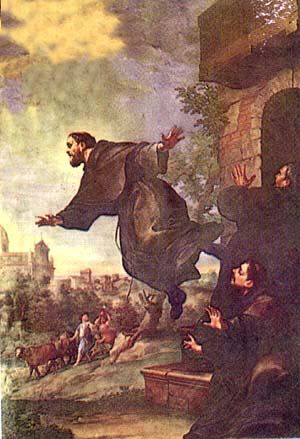
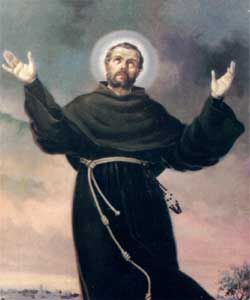
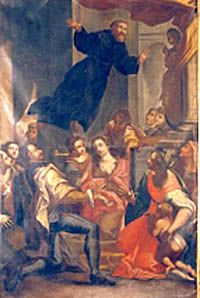

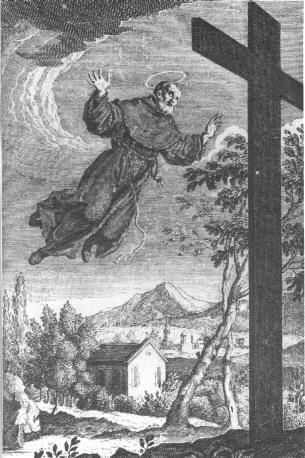
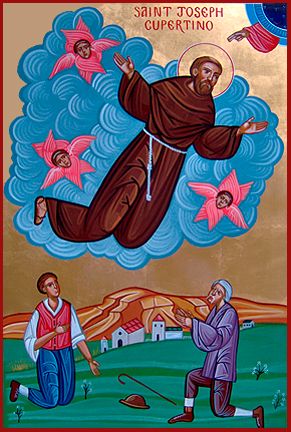
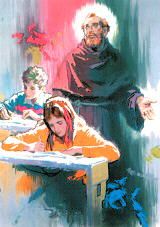
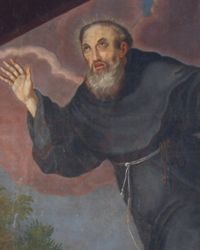
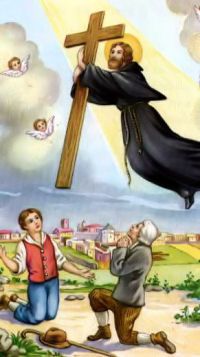

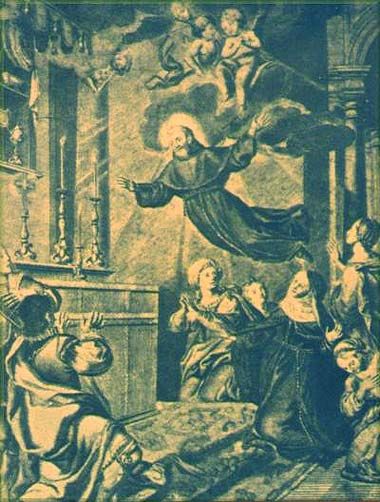
No comments:
Post a Comment
Thanks for leaving a comment. If you wish to submit a prayer request, however, please do so above, using the "Contact" tab.